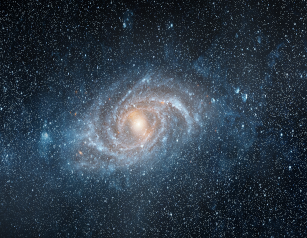
NRRP intervention area: Mission 4 – Education and Research
Component: 2 - From research to business
Investment: 3.1 - Fund for the creation of an integrated system of research and innovation infrastructures
Duration: the project will end on 31/06/2025
Total project funding: €49,998,931
Proposer: National Institute of Nuclear Physics
Europe's largest gravitational interferometer in Italy
The ETIC consortium was set up to support the installation of the Einstein Telescope, a new-generation gravitational interferometer, in Italy and in particular in the area of the disused mine in Sos Enattos, Sardinia, a site chosen for its silence and low seismic activity.
The study of gravitational waves, a field already led by Italy thanks to the Virgo experiment conducted in the province of Pisa, is one of the main tools for discovering the universe, and the success of this installation may allow for exploration of the cosmos that is a thousand times greater than with today’s instruments, retracing its evolution almost back to the Big Bang.
The project, supported by ESFRI planning, the European Strategy Forum on Research Infrastructure, has the following objectives:
- to carry out a feasibility and characterisation study of the Sos Enattos site in north-eastern Sardinia, to assess its suitability for hosting the Einstein Telescope
- to set up and strengthen, at the headquarters of the National Institute of Nuclear Physics, universities and research organisations participating in the project, a national network of Research and Development laboratories for the study of enabling technologies for the future interferometer
Project structure and participation
Consortium Members
- Alma Mater Studiorum - Università di Bologna
- Italian Space Agency
- National Institute of Astrophysics
- Università degli Studi di Cagliari
- Università degli Studi della Campania Luigi Vanvitelli
- Università di Genova
- Università degli Studi di Padova
- Università degli Studi di Perugia
- Università di Pisa
- Università degli Studi di Napoli Federico II
- Università di Roma “La Sapienza”
- Università di Roma Tor Vergata
Project team
University of Bologna team
Scientific coordinator
Prof. Andrea Cimatti
Staff hired with project funds
PhD students
- Sara Cepec
Departments involved
- Department of Physics and Astronomy "Augusto Righi" – DIFA
The University of Bologna’s role
The University of Bologna is designing a heterogeneous computing platform to be used to support the design and testing of new innovative applications for the Telescope and to identify the best coating for its mirrors.
